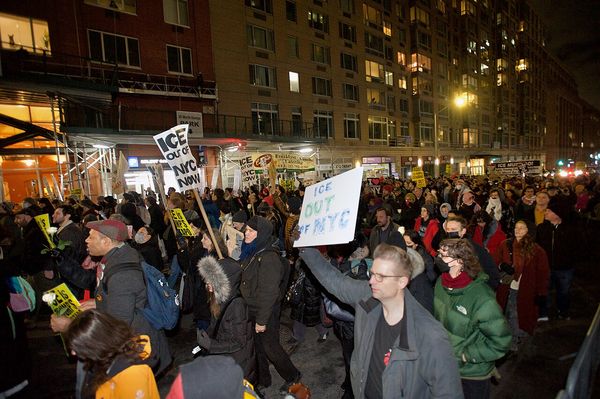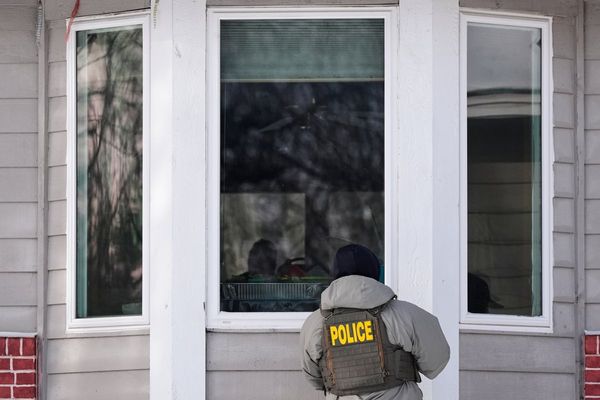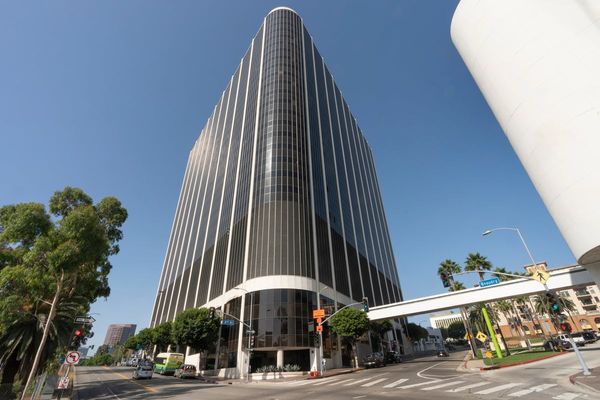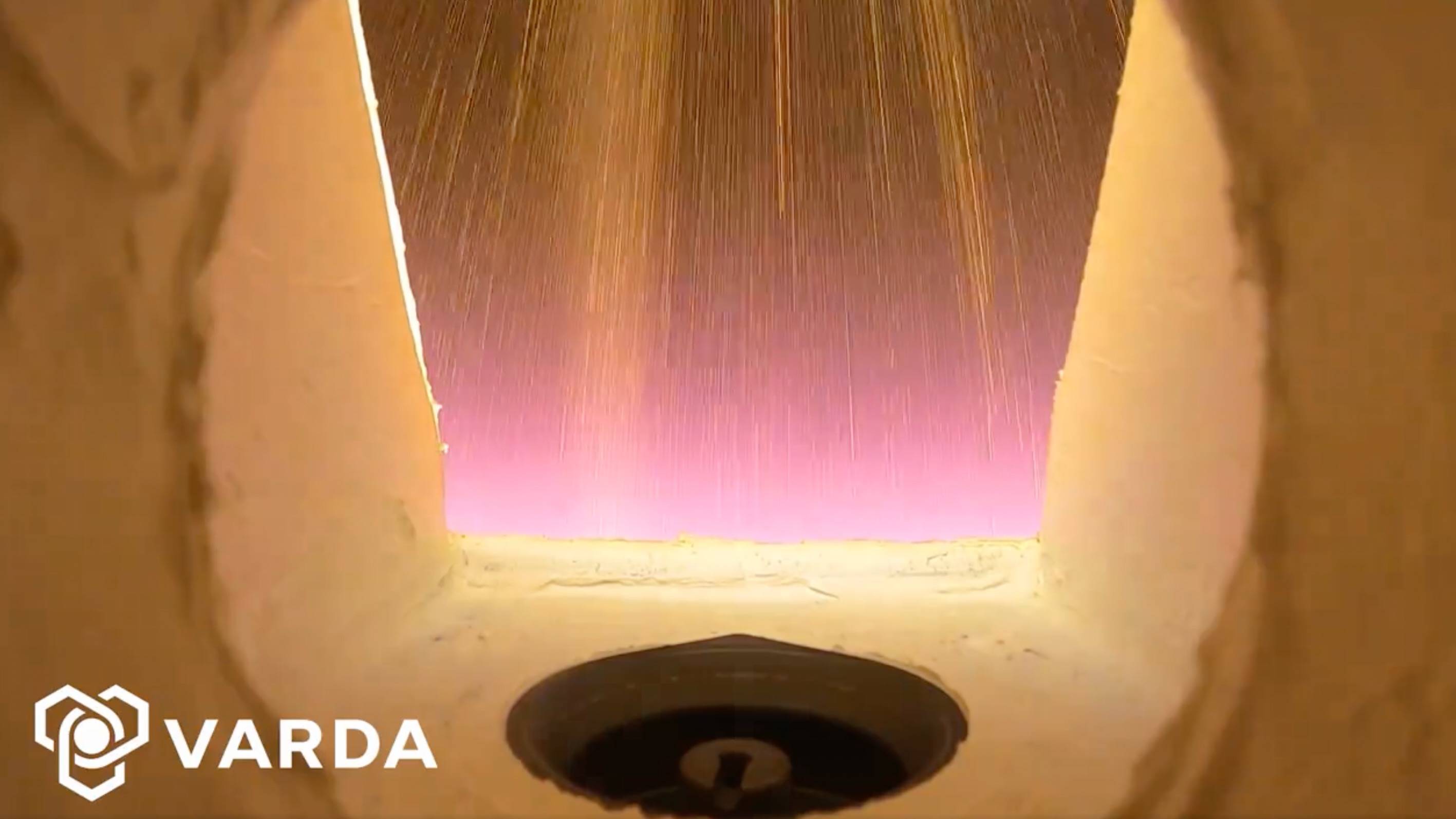
A pioneering private space capsule captured spectacular footage of its fiery homecoming last month.
Varda Space's first-ever mission, called W-1, wrapped up on Feb. 21 with the successful recovery of the California's startup's off-Earth manufacturing capsule.
That conical, 3-foot-wide (0.9 meters) capsule touched down softly under parachute at the Utah Test and Training Range west of Salt Lake City, carrying space-grown crystals of the antiviral drug Ritonavir.
But much of its journey through Earth's atmosphere was quite harrowing, as shown by the video, which Varda posted to its YouTube channel on Feb. 28. The craft slammed into our planet's thick air at more than 25 times the speed of sound, generating a cataract of colorful, cascading sparks.
Related: See Varda Space's private in-space manufacturing capsule's historic return to Earth in photos

Varda aims to become a major player in the nascent in-space manufacturing industry, which takes advantage of the unique microgravity environment of low Earth orbit to make high-value products like pharmaceuticals.
Such work has been done on the International Space Station already with the help of astronauts. But Varda offers customers an all-in-one autonomous option — a capsule that serves as both a minifactory and a return vehicle, taking pricey humans out of the orbital loop.
W-1 was Varda's first in-space test. The mission launched atop a Falcon 9 rocket in June 2023, one of more than 70 payloads on SpaceX's Transporter-8 rideshare mission. Varda's capsule was integrated into a Rocket Lab Photon spacecraft, which provided power, propulsion and other vital services.
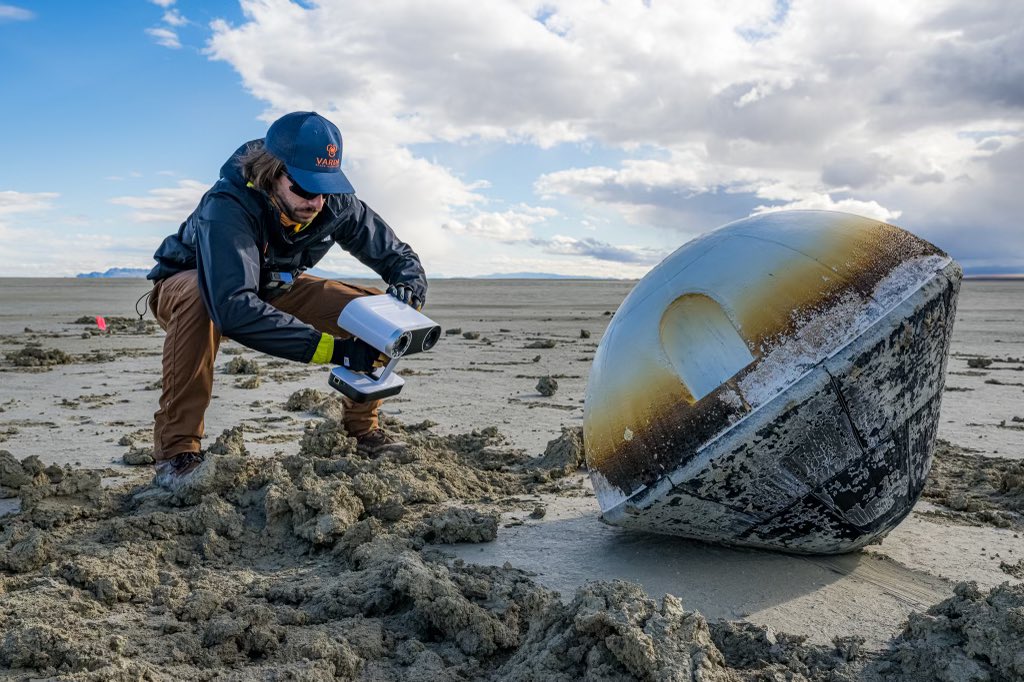
About a week after liftoff, Varda announced that crystals of Ritonavir — a drug used to treat HIV and hepatitis C — had grown successfully aboard the capsule as planned.
The company wanted to bring those crystals down shortly thereafter but ran into difficulties securing the required reentry and landing approvals. That permission came last month, paving the way for W-1's historic touchdown.
Varda transported the capsule from Utah to its Los Angeles facilities for inspection and analysis.
"The Ritonavir vials onboard the spacecraft will be shipped to our collaborators Improved Pharma for post-flight characterization," Varda wrote in an update shortly after landing on Feb. 21. "Additionally, data collected throughout the entirety of the capsule's flight — including a portion where we reached hypersonic speeds — will be shared with the Air Force and NASA under a contract Varda has with those agencies."


